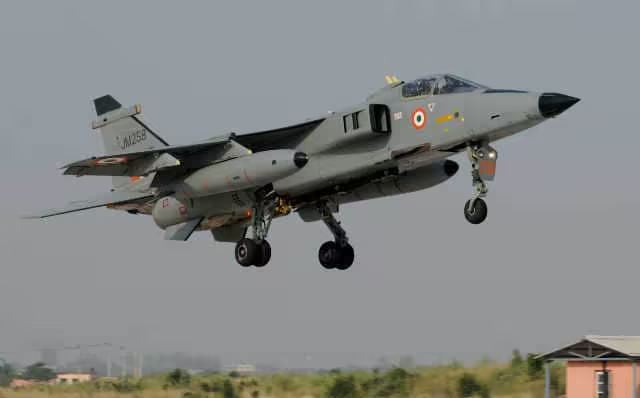Indian Air Force Faces Third Jaguar Jet Crash Since March
- July 9, 2025
- 0

Two Indian Air Force (IAF) fighter pilots tragically lost their lives when a Jaguar aircraft crashed near Churu district in Rajasthan on Wednesday afternoon. The incident occurred around 1.25 pm in an agricultural field in Bhanoda village, as confirmed by local police authorities.
The IAF reported that the Jaguar Trainer aircraft was on a routine training mission when it met with an accident. Both pilots sustained fatal injuries, but fortunately, no damage to civilian property was reported. In a statement on X, the IAF expressed deep regret over the loss of lives and announced the formation of a court of inquiry to determine the cause of the crash.
This marks the third Jaguar crash since March this year. On March 7, an Anglo-French SEPECAT Jaguar ground attack fighter crashed near Ambala during a routine sortie. The pilot managed to eject safely, underscoring the risks associated with operating these aging aircraft.
Another crash occurred on April 3 in Gujarat’s Jamnagar, where Flight Lieutenant Siddharth Yadav tragically died due to a critical technical malfunction. Demonstrating remarkable bravery, Lieutenant Yadav steered the aircraft away from a densely populated area before ejecting his fellow pilot to safety, ultimately sacrificing his own life.
The Jaguar jets were inducted into the IAF in 1979 and play a crucial role in India’s nuclear triad. Despite being outdated, they remain operational due to delays in acquiring newer aircraft like the HAL Tejas Mk2, Rafale, and MRFA (Multi-Role Fighter Aircraft). The IAF plans to phase out older Jaguar models after 2027-28 but currently faces a shortage of fighter squadrons, operating only 30 jets against a sanctioned strength of 42.5.
Previous investigations into Jaguar accidents have often pointed to engine failures, highlighting that these jets are well beyond their intended service life. While countries like Britain, France, Ecuador, Nigeria, and Oman have retired their Jaguars, India continues to rely on them due to limited alternatives.